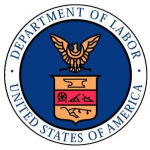- Industria: Government; Labor
- Number of terms: 77176
- Number of blossaries: 0
- Company Profile:
A worker's length of service with an employer. In union contracts, seniority often determines layoffs from work and recalls back to work.
Industry:Labor
An effort to disrupt the business of an employer through boycott techniques, even though his own workers are not directly involved in the labor dispute.
Industry:Labor
A worker who refuses to join the union or who works while others are striking. Also known as a "strikebreaker. "
Industry:Labor
From the French word "sabot" or wooden shoe which workers threw into the machines to keep them from working. Workers have been perpetually fearful that new machines would take their jobs away from them and sabotage was one of their early answers to the Industrial Revolution. It was also a part of strike violence where strikers incapacitated machines or buildings in order to shut down production.
Industry:Labor
The term used by opponents of unions to institute open shop laws in the state. The expression has nothing to do with guaranteeing anyone the right to a job.
Industry:Labor
Wages expressed in terms of what today's dollar will buy. A common method of determining buying power is through the Consumer Price Index.
Industry:Labor
The procedure with which union recognition was achieved in factories during the 1930s. Rather than being compelled to strike for union recognition, the new Wagner Act provided a method of union representation elections which were conducted by the National Labor Relations Board.
Industry:Labor
The measure of efficiency in production. The comparison of resources used in creating goods and services. If the same resources that were used in the past produce more goods and services, productivity has increased.
Industry:Labor
In 1861, Congress passed a prevailing wage rate law which said in part: That the hours of labor and the rates of wages of the employees in the navy yards shall conform as nearly as possible with those of private establishments in the immediate vicinity of the respective yards.
Industry:Labor
Unions engaged in political action at least as far back as the 1820s, when they demanded universal free public education and abolition of imprisonment for debt as their major social reform issues. Today, AFL CIO and independent unions expend a substantial amount of money and effort in the promotion of their political causes. Their rationale is that what is gained at the bargaining table can be taken away from unions through legislation. AFL CIO's formal political organization which functions at the national, state, community and local union level is the Committee on Political Education (COPE).
Industry:Labor
